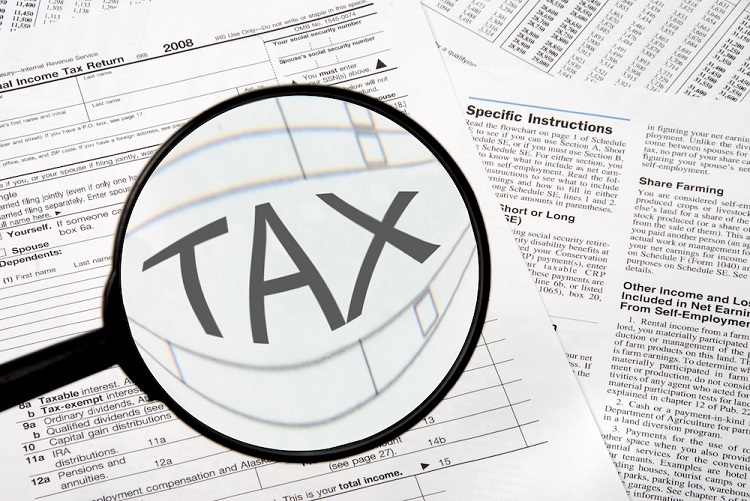The growth of online casinos has revolutionized the way people engage with gambling, making it more accessible than ever. Alongside the excitement of winning, players often wonder about the tax implications of their winnings.
Understanding the rules for online casino taxation is essential to avoid legal troubles and ensure compliance with the relevant laws.
Tax Treatment of Gambling Winnings Across Jurisdictions
Different countries approach the taxation of gambling winnings in various ways. These differences stem from cultural attitudes, government policies, and the legal status of gambling within each jurisdiction.
Tax-Free Gambling Winnings
In some countries, such as the United Kingdom, gambling winnings are generally tax-free. This means players can keep 100% of their winnings without needing to report them to the tax authorities. This policy stems from the government taxing the operators of gambling businesses rather than the players themselves.
For example, in the UK, online casinos pay a gambling duty on their profits, relieving players of any tax obligations on their winnings.
Taxable Gambling Winnings
In contrast, countries like the United States treat gambling winnings as taxable income. Regardless of whether the gambling takes place online or at a physical casino, players are required to report their winnings to the Internal Revenue Service (IRS). The U.S. tax code mandates that all gambling winnings, including those from online casinos, be reported as income, regardless of the amount.
Special Provisions in Some Countries
Some jurisdictions impose taxes only when winnings exceed a specific threshold. For example, certain European nations tax large gambling wins while smaller amounts remain untaxed. Additionally, local tax laws may vary within a country, creating different obligations depending on where the player resides.
How Taxes Are Calculated on Casino Winnings
Tax calculation methods differ depending on the country and local regulations. Understanding these calculations is vital to comply with tax obligations.
Gross vs. Net Winnings
Some countries tax players based on their gross winnings, meaning the total amount won without deducting losses. Others allow players to deduct their gambling losses from their winnings, taxing only the net amount. The latter method is considered more equitable by many, as it accounts for the inherent risks involved in gambling.
Tax Rates
The applicable tax rate can vary widely. In some jurisdictions, gambling winnings are taxed at a flat rate, while others apply progressive tax rates based on the total amount won. High-income earners may find themselves subject to higher tax rates, particularly in countries with progressive tax systems.
Withholding Tax
Some countries require casinos to withhold a portion of the winnings at the time of payout. For example, in the United States, online casinos must withhold 24% of winnings exceeding a certain amount. The withheld amount is then submitted to the tax authorities on behalf of the player.
Record-Keeping Requirements for Players
Accurate record-keeping is crucial for players who need to report their online casino winnings. Tax authorities may require detailed records to verify the amounts reported.
Information to Keep
- Dates of gambling activities
- Amounts wagered and won
- Online casino names and locations
- Documentation of losses, such as receipts or account statements
Why Records Matter
Maintaining proper records can help players claim deductions for losses where applicable. It also serves as proof of compliance if tax authorities conduct an audit. Many online casinos provide transaction histories that can assist players in maintaining accurate records.
Cross-Border Gambling and Taxation
Online gambling often involves players engaging with casinos based in different countries. This raises questions about which country’s tax laws apply.
Double Taxation
In some cases, players may face the risk of double taxation, where winnings are taxed in both the country where the casino operates and the player’s home country. To address this, certain countries have tax treaties that prevent double taxation by providing exemptions or credits.
Reporting Foreign Winnings
Players are generally required to report foreign gambling winnings to their home country’s tax authorities. Failure to do so can result in penalties, even if the winnings were already taxed in the casino’s jurisdiction.
Online Casinos and Tax Reporting Obligations
While players bear the primary responsibility for reporting their winnings, online casinos may also have reporting obligations. Understanding these obligations can provide players with insight into how their winnings are documented.
Reporting by Casinos
Some jurisdictions require online casinos to report large payouts to tax authorities. For instance, in the United States, casinos must file a Form W-2G for winnings exceeding a certain threshold. This form is sent to both the player and the IRS, ensuring transparency in tax reporting.
Player Identification
To comply with reporting requirements, online casinos often require players to verify their identity. This includes providing personal information, such as name, address, and taxpayer identification number. Failure to provide this information can result in the withholding of winnings.
Tax Deductions for Gambling Losses
In countries where gambling losses can be deducted, players may benefit from a reduced tax liability. However, strict rules govern these deductions.
Eligibility for Deductions
Players must itemize their deductions to claim gambling losses. This means they forgo the standard deduction and instead list each deductible expense, including losses. Additionally, losses cannot exceed the total amount of gambling winnings reported.
Documentation Required
To claim deductions, players must provide detailed documentation of their losses. This includes account statements, receipts, and records of each gambling session. Without proper documentation, tax authorities may disallow the deductions.
The Role of Professional Advice
Navigating the complexities of online casino taxation can be challenging. Professional tax advisors can help players understand their obligations and maximize any available deductions.
Benefits of Seeking Advice
- Ensuring compliance with tax laws
- Reducing the risk of penalties
- Optimizing deductions for gambling losses
Choosing the Right Advisor
When selecting a tax advisor, players should look for professionals with experience in gambling taxation. Advisors with knowledge of international tax treaties can be particularly valuable for players engaging in cross-border gambling.

